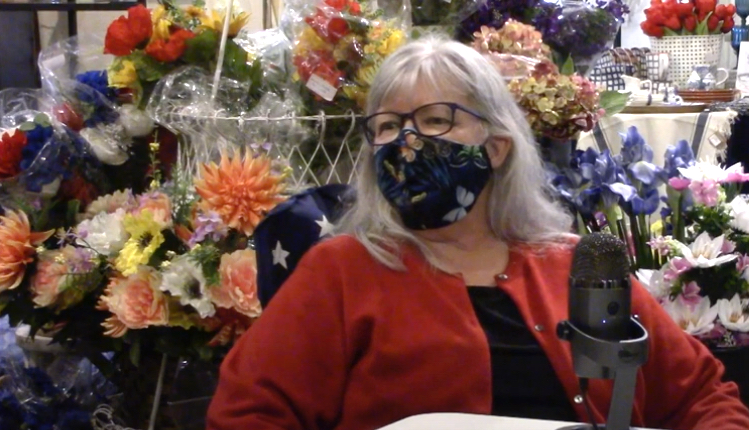“No Mow May,” a citywide pollinator advocacy program, will be returning to Fort Atkinson for a second year, according to an announcement released by the nonprofit group Heart of the City. The group is the facilitator of the program.
According the the release, the No Mow May program is designed to help increase the number and diversity of pollinators and bees.
Those interested in participating in the program are encouraged to sign up for the event through the Heart of the City’s website. Participants will receive free yard signs explaining the event’s goals.
Additionally, those interested in the program are encouraged to visit the Dwight Foster Pubic Library, Saturday, April 23, between 9 a.m. and 1 p.m. Members of the group will be on hand to answer questions and help those interested sign up. Yard signs will be available for pickup by those who sign up for the event.
Members of the Heart of the City also will be providing a FACTalks presentation about No Mow May on April 27 at 7 p.m. More information about the presentation is available on the Fort Atkinson Club website: https://www.fortatkinsonclub.org/factalks/.
Heart of the City members will be hosting a table with information about pollinators and plants at Blodgett Garden Center, 1222 Janesville Ave., Fort Atkinson. The presentation will be held April 30, from 9 a.m. until 3 p.m.
According to the release, free bluebird houses are also being made available. The houses are made by Donald Williams.
A second No Mow May signup event is planned for Saturday, May 7. Heart of the City members will be hosting a table at the first Fort Atkinson Farmer’s Market. Information, seeds and signage will be available at the table.
Heart of the City President Frankie Fuller said recently by phone that the organization went before the Fort Atkinson City Council in March, at which time the council approved a temporary exemption to city code, allowing homeowners to grow their grass in their backyards taller than 8 inches. The exemption is in effect within the city for the month of May.
Within its news release, the nonprofit asked residents to consider mowing their backyard lawn at a higher length or not mowing it at all in May.
Additionally, the release asked property owners to consider planting native flowers, shrubs and trees to provide a nutritionally rich diet for pollinators and birds.
“Diversity in your yard also adds to its beauty,” Heart of the City member Margaret Schroeder was quoted as saying in the release.
To help people bring diversity to their yards, the organization will be offering a free pollinator seed mix sample.
“The seed mix is the same (as the one) used by the Jefferson County Parks Department, with the hope of increasing the territory for pollinators to travel safely and successfully,” according to the release.
A variety of plant plugs will be made available by the group after May 31, the release stated.
Donations to help defray costs are accepted, with appreciation, the release noted.
Heart of the City member, Barbara Brouwer, within the release, cited the dandelion as a pollinator-friendly early spring flower.
“Not only is it full of nutrients for pollinators, dandelion greens are rich in vitamins and minerals for humans and can be mixed in salads or cooked with other greens,” Brouwer stated.
According to the release, “Centuries ago, ‘mowed’ lawns were taken care of naturally by grazing animals and the people who used the grasses to create clothing, housing and food.”
A lawnmower was invented in the 1830s, the release continued, noting: “It was heavy and difficult to use, but it represented a real symbol of wealth.”
Further, the release stated: “Manicured lawns have become a cultural norm but they contribute to loss of vital pollinators, air pollution and climate change by (the) burning of fossil fuels. Green space not dominated by green grass can also be beautiful and less destructive to the environment.”
Additionally, the release noted: some ecologists and environmental groups have advocated against the use of chemicals on lawns that may hinder the health of pollinators.
The release cited published information about the history of DDT (Dichloro Diphenyl Trichloroethane), a synthetic organic compound used in the 1940s as an insecticide. The Environmental Protection Agency (EPA) issued a cancellation order for DDT in 1972 based on its adverse environmental effects, such as those to wildlife, as well as its potential human health risks. More information about the EPAs regulatory decision-making is here: https://www.epa.gov/ingredients-used-pesticide-products/ddt-brief-history-and-status.
Within the release, Brouwer noted: “What we know today is that we depend on pollinators to provide us with food on which we rely for our very existence and flowers that we use to decorate our yards, homes and hearts, which gives us joy and inspiration for many activities.”
Also within the release, Heart of the City member Kitty Welch, expressed appreciation for the Fort Atkinson City Council’s decision to adopt a temporary exemption to city code.
She added that those preferring to keep a manicured lawn can support pollinator habitat by setting aside designated “corners” or “niches” in their yards.
Information about No Mow May, the organization’s programming and goals, and birdhouses can be found on the Heart of the City’s website: https://heartofthecity.us/.

Heart of the City member Barbara Brouwer explains the value and benefits of “No Mow May” during the “What’s up? with Michael Clish” show in advance of the pollinator program’s debut in Fort Atkinson last year. The full YouTube platform edition can be viewed by clicking the arrow below.
This post has already been read 3264 times!